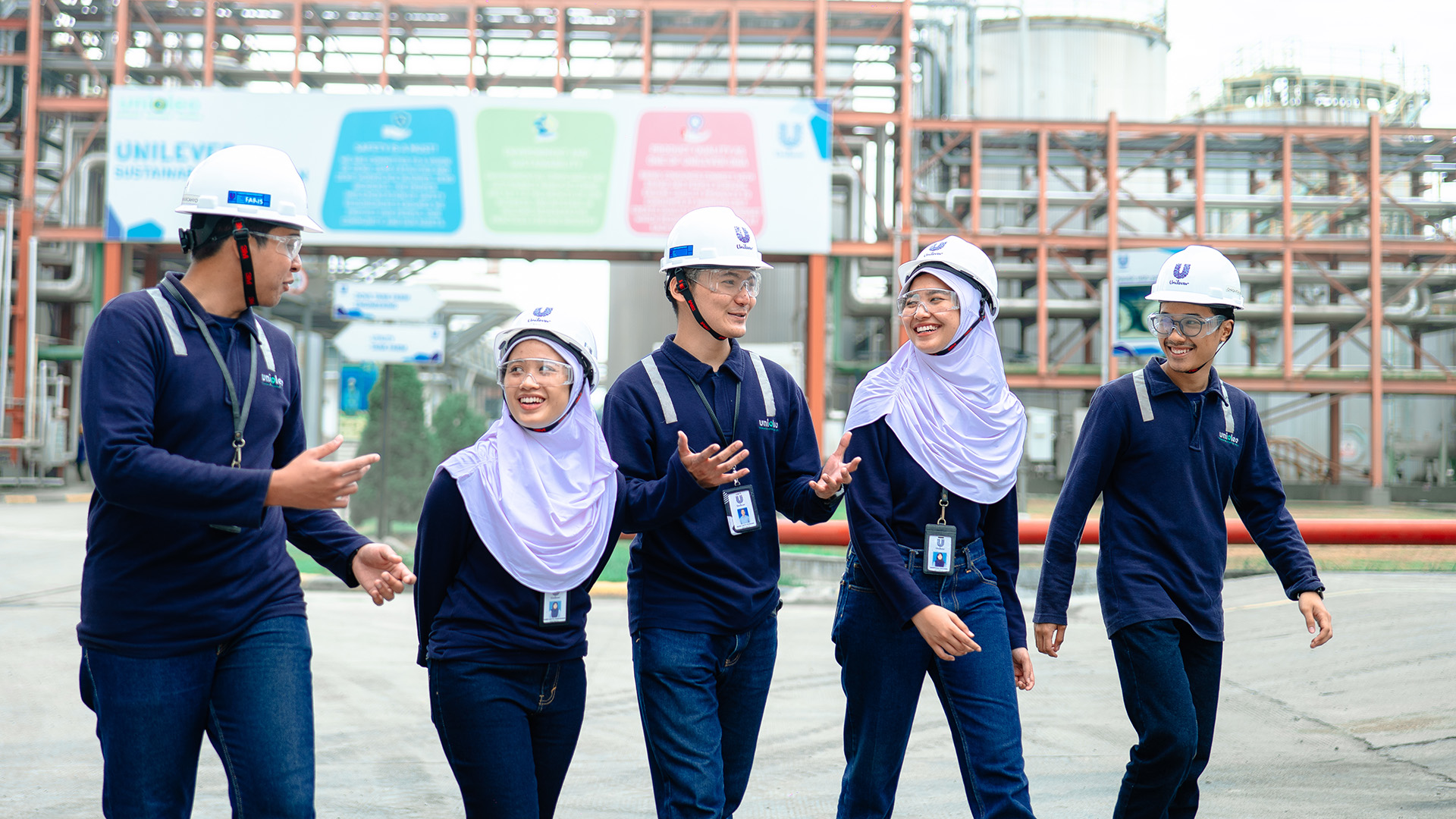Unilever: A Global Leader In Consumer Goods
Unilever has established itself as a household name worldwide, symbolizing innovation, sustainability, and quality in consumer goods. As one of the largest multinational corporations, Unilever continues to influence how we perceive everyday products. From food and beverages to personal care and cleaning solutions, its impact is profound. In this detailed article, we will delve into the history, achievements, and future aspirations of this iconic company, exploring what makes it a leader in the industry.
Founded in 1929, Unilever has grown into a leading force in the consumer goods market, operating in over 190 countries. Its dedication to sustainability and social responsibility has earned it a reputation as a forward-thinking organization that balances profit with purpose. Through its commitment to innovation and quality, Unilever has consistently set benchmarks in the industry.
As we explore Unilever's journey, we will uncover the critical factors behind its success, its influence on global markets, and the strategies it employs to remain competitive in a rapidly evolving industry. Let's embark on this exploration of a remarkable company and its contributions to the world of consumer goods.
Read also:Understanding Hail A Comprehensive Guide To Natures Ice Storms
Table of Contents
- The Evolution of Unilever
- Unilever's Diverse Brand Portfolio
- Sustainability at the Core
- Driving Innovation in Product Development
- Global Influence and Market Presence
- Financial Strength and Performance
- Addressing Challenges in the Industry
- A Vision for the Future
- Unilever's Role in Society
- Final Thoughts
The Evolution of Unilever
The Birth of a Global Giant
Unilever was born from the merger of two pioneering companies: Lever Brothers from the UK and Margarine Unie from the Netherlands. This union in 1929 marked the beginning of a consumer goods powerhouse that would shape industries worldwide. Initially focused on soap and margarine, Unilever rapidly expanded its product lines to cater to the growing global population, setting the stage for decades of innovation and growth.
Throughout the 20th century, Unilever strategically acquired numerous companies, strengthening its portfolio and diversifying its offerings. This approach enabled the company to adapt to changing consumer preferences and market dynamics, cementing its position as a leader in the consumer goods sector.
Defining Moments in Unilever's Journey
- 1929: The formation of Unilever through the merger of Lever Brothers and Margarine Unie.
- 1930s: Expansion into international markets, establishing a strong presence in Africa, Asia, and Latin America.
- 1980s: Introduction of sustainable practices in production processes, setting a precedent for the industry.
- 2000s: Launch of the Unilever Sustainable Living Plan (USLP), a groundbreaking initiative for sustainable growth.
Unilever's Diverse Brand Portfolio
Renowned Brands That Define Unilever
Unilever boasts an extensive portfolio of over 400 brands, each catering to specific consumer needs. Iconic names like Dove, Lipton, Knorr, Ben & Jerry's, and Axe exemplify the company's dedication to quality and innovation. These brands reflect Unilever's commitment to enhancing the lives of consumers across the globe.
Data from Statista indicates that Unilever's brands account for approximately 25% of the global market share in the consumer goods sector, underscoring the company's dominance and influence in the industry.
Expanding Horizons Through Acquisitions
Unilever's strategy of acquiring and nurturing brands has been instrumental in its growth. By investing in emerging markets and innovative startups, the company ensures its portfolio remains relevant and competitive. Notable acquisitions, such as The Dollar Shave Club, highlight Unilever's adaptability to new business models and trends, reinforcing its leadership position.
Sustainability at the Core
The Unilever Sustainable Living Plan (USLP)
Introduced in 2010, the USLP is a comprehensive framework designed to reduce Unilever's environmental footprint while enhancing the lives of millions of people. The plan focuses on three key pillars: improving health and well-being, reducing environmental impact, and enhancing livelihoods. By 2020, Unilever had achieved remarkable progress, including halving its greenhouse gas emissions and improving the livelihoods of over 1.5 million smallholder farmers.
Read also:Experience The Thrill A Comprehensive Guide To Cavaliers Basketball
Sustainable Practices in Agriculture and Supply Chain Management
Unilever is committed to sourcing its raw materials sustainably, ensuring alignment with its sustainability goals. By collaborating closely with farmers and suppliers, the company promotes sustainable farming practices, reduces waste, and enhances operational efficiency. This commitment underscores Unilever's dedication to environmental stewardship and social responsibility.
Driving Innovation in Product Development
Investing in Research and Development
Innovation is the cornerstone of Unilever's success. The company invests significantly in research and development, employing over 6,000 scientists and engineers globally. This commitment has led to the creation of groundbreaking products that meet the evolving needs of consumers, reinforcing Unilever's position as a leader in innovation.
Embracing Emerging Technologies
Unilever leverages emerging technologies such as artificial intelligence, blockchain, and big data to enhance its product offerings and streamline operations. By staying ahead of industry trends, the company ensures its products remain relevant and competitive in the global marketplace, further solidifying its leadership in the industry.
Global Influence and Market Presence
Unilever's Worldwide Reach
With operations in over 190 countries, Unilever is one of the most globally diversified consumer goods companies. Its ability to adapt to local markets and consumer preferences has been a key driver of its success. By understanding and responding to regional needs, Unilever has established a robust presence across continents.
Expanding Opportunities in Emerging Markets
Recognizing the potential of emerging markets, Unilever has made significant investments in regions such as India, China, and Brazil. By customizing its products and marketing strategies to meet local demands, the company continues to expand its footprint in high-growth markets, ensuring sustained growth and profitability.
Financial Strength and Performance
Revenue Growth and Profitability
In 2022, Unilever reported revenues of €52.7 billion, demonstrating its financial resilience and stability. The company's focus on cost efficiency and operational excellence has contributed to its consistent profitability over the years, reinforcing its position as a leader in the consumer goods industry.
Building Trust with Investors
Unilever maintains strong relationships with its investors, providing regular updates on its financial performance and strategic initiatives. The company's stock has performed impressively on both the London Stock Exchange and Euronext Amsterdam, reflecting investor confidence in its long-term prospects and commitment to sustainable growth.
Addressing Challenges in the Industry
Competitive Landscape and Economic Uncertainty
Operating in a highly competitive industry, Unilever faces challenges from both established competitors and emerging players. Additionally, global economic uncertainty and geopolitical tensions pose risks to the company's operations and profitability. However, Unilever's adaptability and strategic focus enable it to navigate these challenges effectively.
Navigating Regulatory and Sustainability Requirements
As a global leader in sustainability, Unilever must navigate an increasingly complex regulatory landscape. Ensuring compliance with environmental regulations and consumer protection laws requires significant investment and resources. Despite these challenges, Unilever remains committed to its sustainability goals, demonstrating its leadership in responsible business practices.
A Vision for the Future
Strategic Priorities for Sustainable Growth
Unilever's future success will hinge on its ability to adapt to changing market conditions and consumer preferences. The company plans to focus on sustainable growth, digital transformation, and innovation to drive long-term value creation. By prioritizing these areas, Unilever aims to maintain its leadership position in the consumer goods industry.
Exploring New Frontiers and Opportunities
Unilever is actively exploring opportunities in emerging markets and new product categories to diversify its revenue streams. By leveraging its expertise and resources, the company aims to capitalize on these growth opportunities, ensuring continued innovation and expansion in the global marketplace.
Unilever's Role in Society
Corporate Social Responsibility in Action
Unilever's commitment to corporate social responsibility (CSR) is evident in its numerous initiatives aimed at improving the lives of people and communities worldwide. Through partnerships with NGOs and governments, the company addresses critical issues such as poverty, education, and healthcare, demonstrating its dedication to making a positive impact.
Prioritizing Employee Welfare and Diversity
Unilever places a strong emphasis on the welfare of its employees, offering competitive compensation and benefits packages. The company also promotes diversity and inclusion, ensuring that its workforce reflects the communities it serves. This commitment to employee well-being and diversity strengthens Unilever's culture and reinforces its values.
Final Thoughts
In conclusion, Unilever has established itself as a global leader in the consumer goods industry, driven by innovation, sustainability, and a commitment to improving lives. Its diverse portfolio of brands, robust financial performance, and dedication to social responsibility position the company for continued success in the years ahead. As a trailblazer in the industry, Unilever exemplifies the power of purpose-driven business practices.
We invite you to share your thoughts and insights about Unilever in the comments section below. Additionally, explore other articles on our website to deepen your understanding of the consumer goods industry and its impact on our daily lives. Together, let's celebrate the achievements of companies like Unilever that strive to create a better world for all.


